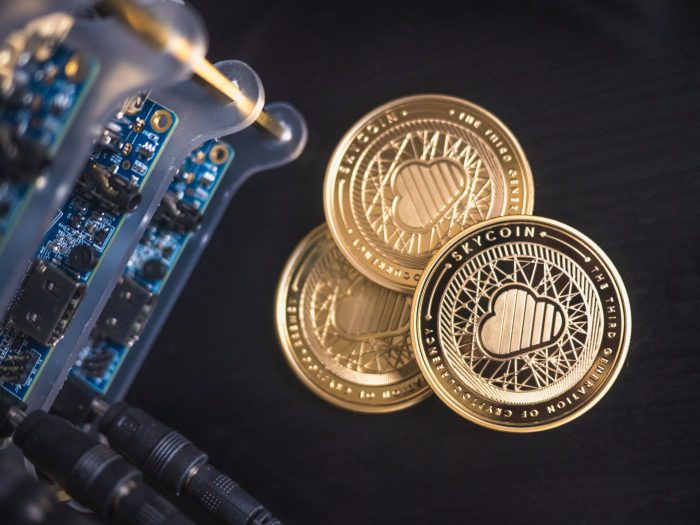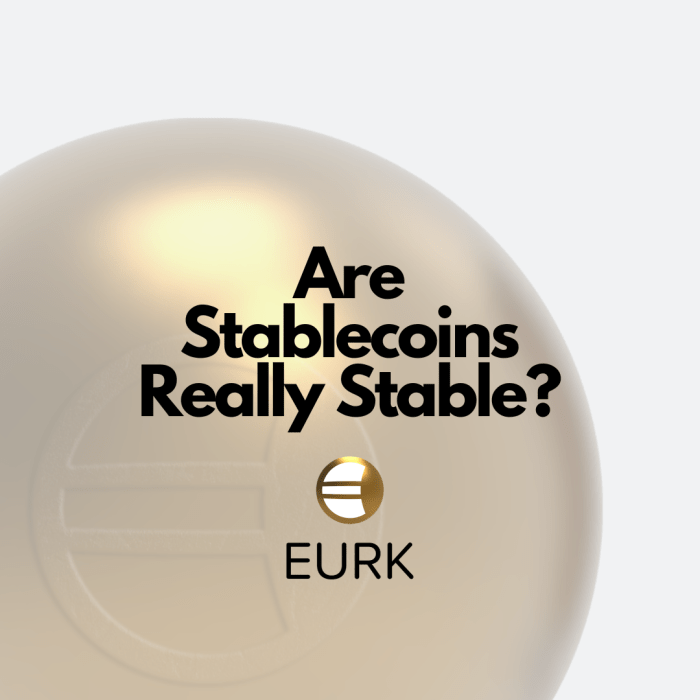Altcoin market trends sets the stage for this enthralling narrative, offering readers a glimpse into a story that is rich in detail with ahrefs author style and brimming with originality from the outset.
The altcoin market is a dynamic space with constant shifts and developments that impact investors and enthusiasts alike. Dive into the world of altcoins as we explore the latest trends and factors influencing this ever-evolving market.
Altcoin Market Overview
Altcoins, or alternative cryptocurrencies to Bitcoin, have seen significant growth and diversification in recent years. These digital assets offer unique features and use cases beyond just being a store of value.
Some popular altcoins include Ethereum (ETH), Ripple (XRP), Litecoin (LTC), and Cardano (ADA). Each of these coins has its own market performance, with some experiencing rapid price increases while others remain more stable.
Recent Trends and Developments
In the altcoin market, recent trends have shown a growing interest in decentralized finance (DeFi) projects. These platforms aim to revolutionize traditional financial systems by offering services such as lending, borrowing, and trading without the need for intermediaries.
Additionally, the rise of non-fungible tokens (NFTs) has created new opportunities for altcoins to gain value. NFTs are unique digital assets that are often bought and sold using cryptocurrencies, leading to increased demand for certain altcoins.
Overall, the altcoin market continues to evolve and expand as new projects and technologies emerge, providing investors with a diverse range of options beyond Bitcoin.
Factors Influencing Altcoin Prices: Altcoin Market Trends
Cryptocurrency markets, including altcoins, are influenced by a multitude of factors that can impact their prices. These factors can vary significantly from traditional financial markets due to the unique characteristics of digital assets. Understanding these influences is crucial for investors and traders looking to navigate the volatile world of altcoin trading.
Market Sentiment
Market sentiment plays a significant role in determining the prices of altcoins. Positive news, developments, or endorsements can drive up prices as investors become more optimistic about a particular cryptocurrency. Conversely, negative news or regulatory actions can lead to a decline in prices as confidence wanes.
Technology and Innovation
The underlying technology and innovation behind an altcoin can also influence its price. Projects with strong technological advancements, use cases, and partnerships are often perceived as more valuable by the market, leading to price appreciation. On the other hand, outdated technology or lack of development can result in a decrease in value.
Market Liquidity
Market liquidity, or the ease with which an altcoin can be bought or sold without significantly impacting its price, is another crucial factor. Altcoins with higher liquidity tend to have more stable prices and are less susceptible to drastic fluctuations compared to illiquid assets.
Regulatory Environment
Regulations play a significant role in shaping the prices of altcoins. Government actions, legal frameworks, and compliance requirements can impact investor confidence and the overall market sentiment towards a particular cryptocurrency. Uncertainty or unfavorable regulations can lead to price volatility and hinder the growth of altcoins.
Market Manipulation
Market manipulation, such as pump-and-dump schemes or coordinated trading activities, can also influence altcoin prices. These malicious practices can artificially inflate or deflate prices, misleading investors and creating a false sense of demand or supply in the market.
Global Economic Conditions
Global economic conditions, such as inflation rates, geopolitical events, or economic crises, can have a spillover effect on altcoin prices. Investors often turn to cryptocurrencies as a hedge against traditional financial assets during times of economic uncertainty, leading to increased demand and price appreciation.
Altcoin Market Volatility

The altcoin market is well-known for its high levels of volatility, which can lead to significant price fluctuations in a short period of time. This volatility is primarily driven by factors such as market sentiment, regulatory developments, technological advancements, and overall market conditions.
Examples of Significant Price Fluctuations
- One of the most notable examples of price fluctuations in the altcoin market is the case of Dogecoin. In early 2021, Dogecoin experienced a massive surge in price, driven by social media hype and celebrity endorsements. However, the price of Dogecoin later plummeted, resulting in significant losses for investors who bought at the peak.
- Another example is the price movement of Ethereum, the second-largest cryptocurrency by market capitalization. Ethereum has seen both rapid price increases and sharp declines, influenced by factors such as network upgrades, decentralized finance (DeFi) developments, and market speculation.
Strategies for Investors to Navigate Volatility
- Diversification: One strategy for investors to mitigate risk in the face of volatility is to diversify their altcoin portfolio. By spreading investments across different cryptocurrencies, investors can reduce the impact of price fluctuations in any single asset.
- Setting Stop-Loss Orders: Investors can also use stop-loss orders to automatically sell their altcoins at a predetermined price level. This can help protect against steep losses in the event of a sudden price drop.
- Staying Informed: Keeping up to date with the latest news and developments in the altcoin market can help investors make informed decisions. By staying informed about regulatory changes, technological advancements, and market trends, investors can better navigate market volatility.
Altcoin Market Capitalization
Market capitalization in the context of altcoins refers to the total value of a specific altcoin in circulation, calculated by multiplying the current price of the altcoin by the total number of coins in circulation. It is a key metric used to assess the size and value of a cryptocurrency in the market.
When comparing the market capitalization of major altcoins to Bitcoin, it is important to note that Bitcoin has the largest market capitalization among all cryptocurrencies. Bitcoin’s dominance in the market is often reflected in its market capitalization, which is significantly higher than that of any individual altcoin.
Significance of Market Capitalization for Investors
Market capitalization plays a crucial role for investors in the cryptocurrency market as it provides insights into the overall value and stability of a particular altcoin. Here are some key points to consider:
- Market capitalization can indicate the relative size and popularity of an altcoin in comparison to others in the market.
- A higher market capitalization often signifies a more established and widely accepted altcoin, which may be less volatile compared to smaller altcoins.
- Investors often use market capitalization as a factor in determining the potential growth and risk associated with investing in a particular altcoin.
Altcoin Adoption and Technology

Altcoin adoption and technological advancements play a crucial role in shaping the trends within the altcoin market. As more individuals and institutions embrace altcoins for various purposes, the demand and value of these digital assets continue to evolve. Additionally, innovative technologies implemented by altcoins contribute to their competitiveness and market appeal.
Decentralized Finance (DeFi) Platforms, Altcoin market trends
Decentralized Finance (DeFi) platforms have been a significant driver of altcoin adoption and technology. These platforms offer a wide range of financial services without the need for traditional intermediaries, providing users with increased accessibility and control over their assets. Altcoins such as Ethereum (ETH) have played a key role in enabling the growth of DeFi through smart contract technology.
Privacy and Security Features
Altcoins focusing on privacy and security features have gained popularity among users seeking enhanced anonymity and protection of their transactions. Coins like Monero (XMR) and Zcash (ZEC) utilize advanced cryptographic techniques to ensure privacy in transactions, appealing to individuals and organizations with specific privacy concerns.
Scalability Solutions
Scalability remains a critical issue for many blockchain networks, and altcoins are actively exploring innovative solutions to address this challenge. Projects like Polkadot (DOT) and Cardano (ADA) are implementing novel consensus mechanisms and layer 2 solutions to enhance scalability and throughput, paving the way for broader adoption and usage.
Interoperability Protocols
Interoperability protocols are becoming increasingly important in the altcoin space, enabling different blockchain networks to communicate and share information seamlessly. Altcoins like Chainlink (LINK) and Cosmos (ATOM) are focused on creating interoperable solutions that facilitate cross-chain transactions and data transfers, fostering greater connectivity and efficiency within the digital asset ecosystem.
Outcome Summary

In conclusion, Altcoin market trends provide valuable insights into the cryptocurrency landscape, highlighting the importance of staying informed and adaptable in this fast-paced environment. Stay ahead of the curve and make informed decisions as you navigate the exciting world of altcoins.
When comparing Bitcoin and Ethereum, it’s important to understand the differences in their technology, use cases, and overall potential. While Bitcoin is often seen as digital gold and a store of value, Ethereum offers smart contract capabilities and a platform for decentralized applications.
To learn more about the differences between Bitcoin and Ethereum, check out this comprehensive Bitcoin vs Ethereum comparison.
When it comes to the cryptocurrency world, the debate between Bitcoin and Ethereum comparison is always a hot topic. Both coins have their own unique features and benefits, making it difficult for investors to choose between the two. To help you make an informed decision, it’s important to understand the differences between Bitcoin and Ethereum.
Check out this detailed Bitcoin vs Ethereum comparison to see which option suits your investment goals better.


